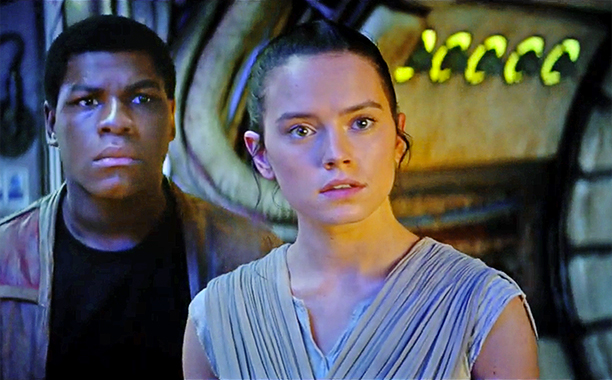One of the most striking things about the new Star Wars film, The Force Awakens, is how old the film sometimes feels. Part of the oldness is because the story itself feels more like a remake of A New Hope than a genuine reboot of a storied franchise. The plot feels familiar, as do most the characters. A poor scavenger on a desert world discovers previously unknown force abilities. A planet-destroying space station figures prominently in the film’s climax. A masked and hooded dark figure serves as the dominant villain and serves a far-off master of whom we know virtually nothing.
Even specific lines call us back to the first Star Wars movie, as when we can overhear storm troopers saying that “they split up” while looking for our heroes aboard a new death star. There is also much in Abrams’ technique that calls to mind the older stories, most notably the side-swipe transitions that are used frequently throughout the film. Based on the reviews, however, this is what most fans wanted (myself included) so you can hardly fault director JJ Abrams for making those choices. That he could make a rejiggered A New Hope and create a fantastic adventure of a film is a testament to his strengths as a director.
Login to read more
Sign in or create a free account to access Subscriber-only content.
